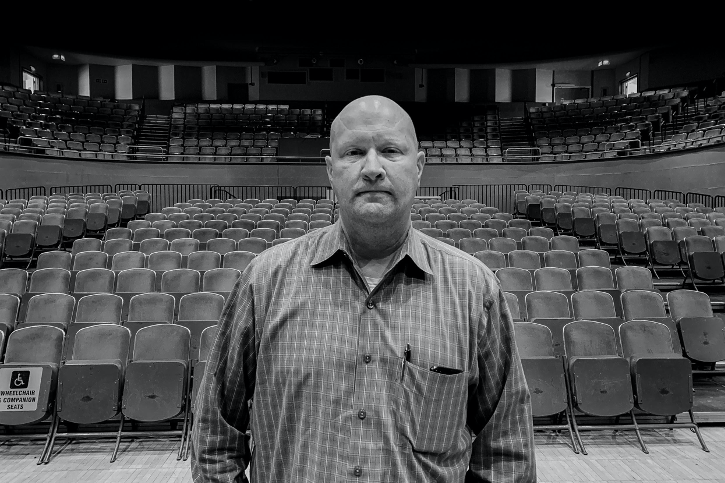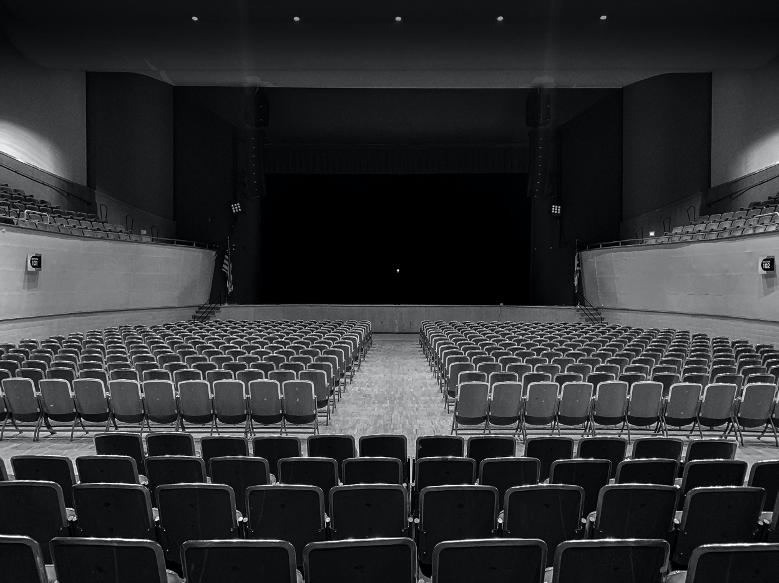An echo in the heartland
An echo in the heartland

A dark, empty theater is eerie. The silence is heavy, and the rows of unoccupied seats are unnerving. Without music, the only audible sound is echoing footsteps.
The Packard Music Hall, a concert venue founded in 1955 by automobile mogul W.D. Packard, is a cultural institution in the industrial heartland city of Warren, Ohio. In March, after weeks of postponing events amid the coronavirus outbreak, the music hall temporarily shut its doors.
Its closure, even if temporary, is yet another blow to a town dependent on the ailing manufacturing sector. Wide swaths of the city are boarded up. The population plunged from over 60,000 in 1970 to under 40,000 today. When the General Motors plant in the neighboring city of Lordstown closed last year, the economy tanked. Thousands lost their jobs, causing a ripple that impacted every other business in the area. According to published reports, Warren’s unemployment rate in early March was 8.2 percent, the highest in the state and well over double the national average.
Then, the pandemic came.
Jim Bugos, the general manager of the Packard Music Hall, is worried. Bugos rescheduled April shows at Packard, including Brian McKnight and Jamey Johnson, to late June and July. No events means no revenue for the local landmark, and the timeline for social distancing is only increasing. “The month of May is our largest event month,” Bugos says. “If we can’t do anything until June or July, it would be a huge hit on the bottom line of the building.”
Money loss is not the only problem, however. The pandemic shut down one of the few cultural venues in the small, hard-hit town.
In his will, W.D. Packard allocated funds to build the music hall and establish the Packard Band, charged to perform for the “edification and entertainment of the people of Warren.” The free monthly concerts draw large crowds, with elementary school students on field trips in attendance.
The hall seats over 2,200 patrons. It features everything from Broadway touring productions to local dance recitals and high school graduations.
Donna Mowrey, a resident of nearby Hubbard, attended every concert of the Packard Band for the last three years. While she understands that the health and safety of the community comes first, she misses attending the shows. “It’s a live show and, to me, that’s more entertaining than television, or even a movie,” she says. “It’s enjoyable, and it’s close. You don’t have to travel.”

And the band certainly misses performing. After spending over 60 years with the Packard Band, executive director Tom Groth is eager to get the band back on stage. “The band was a gift to the people of Warren from W.D. Packard,” he says. “It serves as a great thing for the people of Warren to get this level of music.”
The temporary closure of the music hall left not only a cultural void, but an emotional one. Stephen Gage, the conductor of the Packard Band and a professor at the Youngstown State University’s Dana School of Music, feels a profound personal loss. “It’s devastating,” he says. “I’ve spent my whole life working with musicians. I feel like there’s a hole in my life.”
Bugos does not know what the future holds for the music hall, but he remains hopeful. “I am rescheduling all April events based on the President’s mass gathering guidelines,” he says. “We have some interesting shows coming up here over the next few months, but we’ll see what happens with those.”

This article is part of the Fermata: Arts and Culture in the Time of Coronavirus series reported by students in the Critical Writing course at the Newhouse School. Fermata features stories on the impact of the pandemic on a wide range of artists and cultural figures, from musicians and comedians to restaurateurs and boutique owners.






